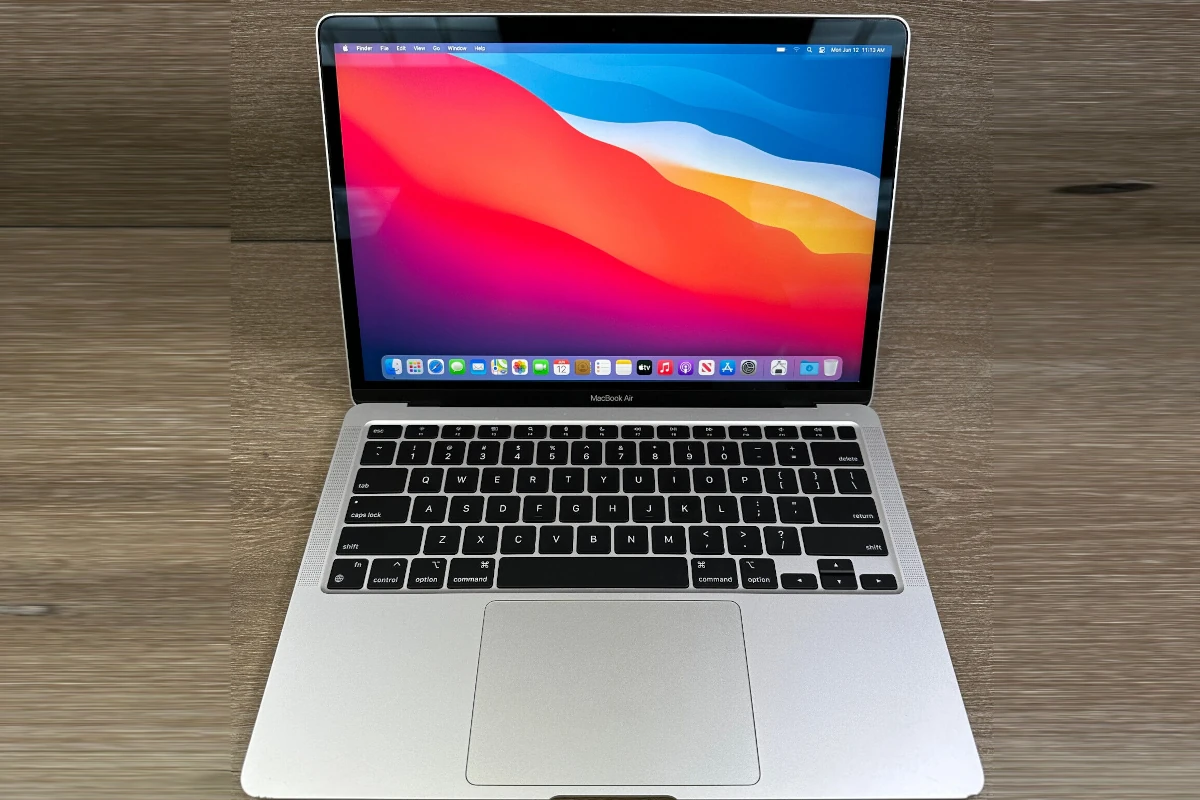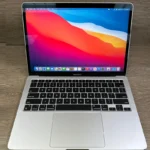Is your MacBook Air running slow? This common problem can be frustrating for users. Many MacBook Air owners can speed up their devices by freeing up storage space, closing unused apps, and keeping macOS up to date. These simple steps often solve performance issues without needing technical skills or new hardware.
Slow MacBook Air performance may have several causes. A full hard drive, too many open apps, or outdated software can all slow down your computer. Sometimes malware is to blame. Checking these areas is a good place to start when trying to fix a sluggish MacBook Air.
Apple provides built-in tools to help diagnose and fix Mac performance problems. The Activity Monitor shows which apps use the most resources. Disk Utility can find and repair disk issues. Running Apple Diagnostics can spot hardware problems. These tools make it easier to find the root cause of slow performance on your MacBook Air.
Troubleshooting a Slow MacBook Air
Possible Culprits
Is your MacBook Air feeling sluggish? Don’t worry, it’s a common issue with a variety of possible causes. Let’s explore some of the most frequent reasons why your MacBook Air might be running slow and how to address them.
1. Too Many Apps Open
It’s easy to lose track of all the applications running on your MacBook Air. Each open app consumes system resources, and having too many open at once can slow things down. Start by closing any apps you’re not actively using. You can do this by clicking the red “x” button in the top-left corner of the app window or by right-clicking on the app icon in the Dock and selecting “Quit.”
2. Storage Space is Full
Your MacBook Air needs some breathing room to operate efficiently. When your storage space is nearly full, it can significantly impact performance. Check your storage space by clicking the Apple icon in the top-left corner of the screen, selecting “About This Mac,” and then clicking the “Storage” tab. Aim to keep at least 10-15% of your storage free. If it’s full, consider deleting unnecessary files, moving files to an external drive, or using cloud storage services like iCloud.
3. Outdated macOS
Running an outdated version of macOS can lead to performance issues. New macOS updates often include performance improvements and bug fixes. To check for updates, go to “System Settings” (or “System Preferences” on older macOS versions), then click “General” and then “Software Update.”
4. Browser Issues
Web browsers can be resource-intensive, especially if you have many tabs open or use extensions. Try closing unnecessary tabs, disabling or removing unused browser extensions, and clearing your browser’s cache and cookies.
5. Startup Items
Some applications launch automatically when you start your Mac, which can slow down the startup process and overall performance. To manage startup items, go to “System Settings” (or “System Preferences”), then click “General” and “Login Items.” Remove any unnecessary apps from the list.
6. Visual Effects
macOS includes visually appealing effects, but these can consume system resources. To reduce visual effects, go to “System Settings” (or “System Preferences”), click “Accessibility,” then “Display,” and check the box for “Reduce motion.”
7. Background Processes
Certain processes run in the background on your Mac, and some might be using excessive resources. You can check Activity Monitor (found in Applications > Utilities) to see which processes are consuming the most CPU or memory.
Troubleshooting Tips
| Issue | Solution |
|---|---|
| Too many apps open | Close unused apps |
| Full storage | Delete files, use external drive, or cloud storage |
| Outdated macOS | Update to the latest version |
| Browser issues | Close tabs, disable extensions, clear cache |
| Startup items | Remove unnecessary apps from startup |
| Visual effects | Reduce motion |
| Background processes | Use Activity Monitor to identify resource-intensive processes |
If you’ve tried these steps and your MacBook Air is still slow, it might be time for a more thorough investigation or to seek help from Apple Support.
Key Takeaways
- Free up storage space and close unused apps to boost MacBook Air speed
- Use Apple’s built-in tools to find the cause of slow performance
- Keep macOS and apps updated to maintain good MacBook Air performance
Understanding Performance Bottlenecks in MacBook Air
MacBook Air users often face slowdowns. These issues can stem from various sources. Let’s look at common causes and how system resources affect speed.
Identifying Common Causes of Slowness
Old software can make a MacBook Air slow. Updates often fix bugs and boost speed. Too many open apps can also slow things down. Closing unused programs helps free up memory.
A full hard drive is another culprit. Macs need free space to run well. Removing old files and apps can speed things up. Malware can also cause problems. Running a scan can catch harmful software.
Startup items that load when the Mac turns on can slow boot times. Disabling unneeded items can help. Heat can also make Macs run slow. Keeping vents clear and using the Mac on flat surfaces helps.
The Impact of Resource Utilization on Performance
System resources play a big role in Mac speed. The CPU handles tasks. When it’s overworked the Mac slows down. Memory (RAM) holds open apps and files. Not enough RAM leads to slow performance.
Disk space affects speed too. A nearly full startup disk makes the Mac sluggish. The graphics card handles visual tasks. Older cards may struggle with new software.
Checking resource use can pinpoint problems. Activity Monitor shows which apps use the most CPU, RAM, and energy. This helps users find and fix performance issues. Upgrading hardware like RAM or switching to an SSD can boost speed on older Macs.
Frequently Asked Questions
MacBook Air users often face performance issues. These questions address common problems and solutions to speed up slow devices.
How can I speed up my MacBook Air?
Restart your MacBook Air. This clears memory and closes apps. Delete unused files to free up space. Update macOS and apps to the latest versions. Remove startup items that run when you turn on your Mac.
What are common reasons for a MacBook Air to become unresponsive?
Too many open apps can slow down a MacBook Air. Full storage space causes slow performance. Old software versions may not work well. Malware or viruses can also make a Mac unresponsive.
What steps can I take to fix lagging issues on a MacBook Air?
Close unused apps and browser tabs. Check Activity Monitor for apps using lots of CPU or memory. Quit these apps if not needed. Reset the SMC and PRAM to fix system issues. Run Apple Diagnostics to check for hardware problems.
How do I clear the cache to improve my MacBook Air’s performance?
Clear browser caches in Safari or Chrome settings. Use a tool like CCleaner to remove system caches. Empty the Trash to free up space. Delete old downloads and temp files you don’t need anymore.
Can a MacBook Air slow down over time, and what can be done about it?
Yes MacBook Airs can slow down over time. Install macOS updates to get new features and fixes. Replace the hard drive with an SSD for faster speeds. Add more RAM if possible to handle more tasks at once.
What should be done if a MacBook Air is running slow despite having sufficient storage?
Check for malware using antivirus software. Reset the SMC and PRAM. Create a new user account to test if the issue is system-wide. Back up your data and reinstall macOS as a last resort.







